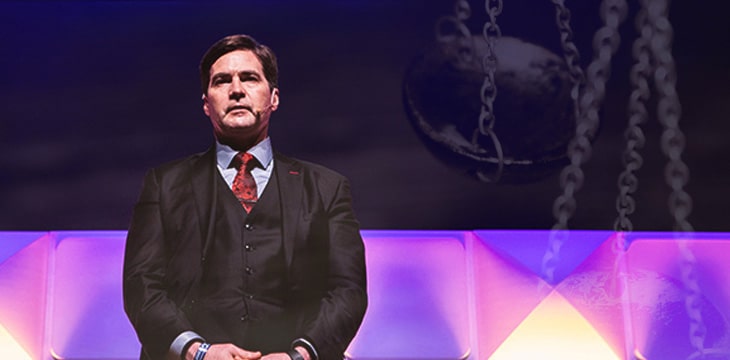|
Getting your Trinity Audio player ready...
|
With the Kleiman v Wright case headed for trial in a month’s time, both sides are battling over an incendiary attempt by Ira Kleiman to get the Court to sanction Dr. Craig Wright over what he calls “a sustained pattern of perjury, forged evidence, misleading filings, and obstruction.”
In the sanctions motion, Kleiman accuses Wright of forging evidence and perjuring himself in relation to his bitcoin holdings, the founding and ongoing status of W&K and more.
The list of demands are far-reaching: Kleiman wants the Judge to enter a default judgment in his favour—essentially asking the Court to resolve the lawsuit right now.
Should the Court decline that request, Kleiman says he’ll settle for the Court deeming hotly contested facts as established, in the plaintiff’s favour. In particular, Kleiman wants the Court to accept as proven that 1) Dave Kleiman and Craig Wright did enter into a 50/50 partnership to develop blockchain IP and mine Bitcoin, that 2) all Bitcoin and forked assets in Craig’s filed list of bitcoin holdings belong to that partnership and that 3) any IP developed by Wright before Dave’s death is also property of the partnership.
These facts are central to the litigation, and have been argued over since the lawsuit was first filed back in 2018. It’s difficult to see how such a finding would be substantially less punitive than an outright default judgment, because Wright’s legal team has always taken issue with the fact that the circumstances that surround the alleged partnership are almost completely opaque to Ira. In fact, the only evidence as to the actual structure of the partnership(s) between Wright and Dave has been offered by Wright, and it directly undermines the narrative in Ira’s lawsuit.
“Plaintiffs’ allegations are just that — allegations,” Wright stated in filings to the court last week. “They aren’t undisputed facts, they aren’t supported by admissible evidence, and defendant hasn’t had the opportunity to challenge the so-called ‘evidence’ on which plaintiffs base their allegations.”
The legal standard required for the extreme judicial measures proposed is high. The entry of a default judgment is generally a last resort for the Court, where no other remedies are available. In his filings, Wright’s team argues that granting the relief proposed by Ira would deny their right to a fair trial, maintaining that any alleged inconsistencies in the evidence submitted by Wright must be left to the jury: after all, otherwise, what are juries for?
In any case, even if the Court felt it appropriate for the jury to be circumvented entirely in assessing the severity of Wright’s supposed misconduct, nothing alleged by Kleiman would make a default judgment (or the finding of facts) appropriate in this instance.
The ‘fraud’ wasn’t aimed at the Court—if Ira’s allegations are to be believed, then Wright’s fraud was directed at the plaintiff. This, Wright argues, does not nearly rise to the standard required by precedent—and there is a lot of precedent identified in Wright’s response, dealing with actions similar to those Wright is alleged to have undertaken. None have been found to amount to fraud at the level required in order to impose the sanctions.
It’s difficult to know how the Judge will rule: on the one hand, the Court has remarked on its scepticism toward Wright before. On the other, the relief Kleiman is asking for would circumvent the long standing issues with Kleiman’s lawsuit.
Kleiman’s version of events has always been porous at best, with slim evidence offered in support of his narrative that his brother and Wright entered into a 50/50 partnership, the goal of which was to mine vast amounts of Bitcoin.
Even if the Court doesn’t accept the severe default sanctions, a finding that Kleiman’s facts are to be deemed established would render the past two years of litigation and nuanced legal argument irrelevant and prevent any of the hotly contested factual disputes from being properly resolved at trial.
Ultimately, this would appear to be a last-ditch effort to get a favourable resolution to the lawsuit in advance of July’s trial, one that would deprive Wright, the defendant, of his day in Court. An artificial judicial finding that disputed facts—which run contrary to the only evidence actually available—should be taken as established, would make it near-impossible for Wright’s team to mount an intelligible defence.
The Court will now decide what to do with Kleiman’s request for sanctions. While the Court can—and has—surprise in this case, circumventing a trial because of allegations of fraud would be a drastic move, one that should only be made in the most extreme of cases.
The response will have to come soon, as the trial is set to start at the beginning of July.

 03-05-2026
03-05-2026 




